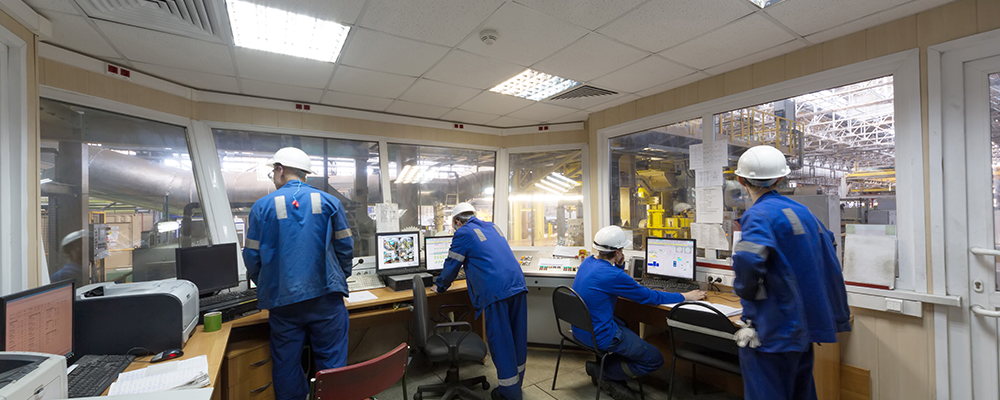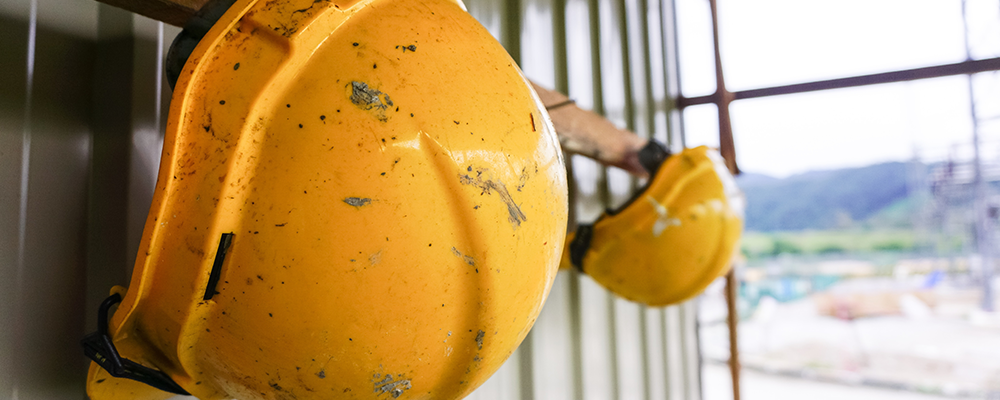
To safety train online or not to safety train online: that is the question. Sure, online training with iLearn is conveniently effective and, yes, you can put operators through their paces when you want, where you want, at incredibly manageable prices.
Then there’s the ‘but’. How can we tell, asks many a site manager, whether knowledge acquired from online learning is being implemented by operators at the coalface.
This is a common concern when it comes to online health and safety training. After all, even when the online training is of the highest quality, the effectiveness of it would quickly become compromised if it didn’t follow through to your day-to-day operations.
For every problem there’s a solution and it just so happens that this one has been solved by the safest hands of all. Deep within the depths of iLearn’s safety laboratory our experts have been hard at work developing the Competence Tracker.
And what should emerge from the smokey cauldrons? A safety tool imbued with the prime objective of ensuring knowledge passes safely from the iLearn site to your site.
This means site managers can now measure an operator’s ability to implement knowledge after successful completion of an iLearn course.
Online health and safety training video
Watch the online health and safety training competence tracker video:
[cta_button]Tell me more about the Competence Tracker [/cta_button]

The US Chemical Safety Board has proposed a more rigorous refinery industry regulatory system in California. It comes as part of the independent federal agency’s approved investigation report into the August 2012 process fire in the crude unit at the Chevron refinery in Richmond, California.
The incident endangered the lives of 19 workers, with 15,000 residents sent to hospital for medical attention.
The CSB report, entitled “Regulatory Report: Chevron Richmond Refinery Pipe Rupture and Fire,” urges California to improve the process safety management regulations of petroleum refineries. A more “robust and adaptive regulatory regime”, says the report, would “greatly enhance” existing state and federal process safety regulations.
CSB chairperson, Dr Rafael Moure-Eraso, said, “The current regulatory system for process safety is largely reactive, at both the state and federal level; companies have a default right to operate, and are subject to penalties when accidents occur or their activities otherwise draw negative attention from regulators.
“In the case of the Chevron refinery fire, the reactive system of regulation simply did not work to prevent what was ultimately a preventable accident.”
In enhancing California’s regulatory systems, the report proposes: “A more comprehensive process hazard analysis; documented use of inherently safer systems analysis and the hierarchy of controls to the greatest extent feasible with the goal of continuous risk reduction to a specified risk target; analysis of the effectiveness of safeguards intended to control hazards; the effective use of process safety indicators that drive performance; and more thorough inspections and audits by a technically qualified regulator.”
Dr Moure-Eraso said such enhancements would free up the adaptability needed to stay apace of improving standards and advancing technology devoid of the regulator continually engaging in unproductive rulemaking.
“Workers, the public and the industry itself would benefit from an adaptable, robust and effective regulatory approach,” he explained. “ The recent bipartisan law passed last month by the California legislator to provide regulators with detailed information concerning extensive maintenance overhauls and repair operations at refineries within the state is certainly a step in the right direction.”
“The CSB,” added Dr Moure-Eraso, “will be holding a public meeting in mid December to release the third part of its investigation. The goal of the CSB’s work is to protect worker and public safety in California. I have great confidence that California will embrace the recommendations in our Regulatory Report.”
Chevron investigation
The report concluded that Chevron “repeatedly failed” over a ten-year period to implement inherently safer design principles and upgrade piping in its crude oil processing unit. It was this piping, says the report, which was “extremely corroded” and ruptured on August 6, 2012.
The report also warns of “a considerable problem with significant and deadly incidents at petroleum refineries over the last decade”.
Investigator Amanda Johnson commented: “The CSB’s regulatory report concludes that under the existing US and California regulatory systems, there is no requirement to reduce risks to a specific target, such as, for example, to as low as reasonably practicable, or ALARP, – similar principles have been adopted in Europe and Australia in the refinery and chemical sectors, as well as the nuclear and space sectors in the U.S.”
“Such a target would also require adaptability and continuous improvement which is vital in responding to newly discovered hazards and lessons from chemicals incidents.”
The Board approved Chevron regulatory report is the second of three in the CSB’s investigation of the 2012 incident.
More about the US Chemical Safety Board
The US Chemical Safety Board is an independent federal agency tasked with the prime objective of investigating industrial chemical accidents.
Whilst the Board does not issue citations or fines, it is responsible for making safety recommendations to plants, industry organisations, labour groups and regulatory agencies such as OSHA and EPA.

A Sentencing Council review has proposed that large organisations found guilty of corporate manslaughter should incur heavier fines of up to £20m in England and Wales.
Under the guidelines, health and safety incidents which result in death could also see fines of £10m handed out.
Michael Caplan QC, a member of the Sentencing Council, said the proposals would ensure that “these crimes don’t pay”.
“Businesses that put people at risk by flouting their responsibilities are undercutting those that play by the rules and do their best to keep people safe,” he said in comments reported by the BBC.
According to the Health and Safety Executive, in 2013-14 there were 133 cases of fatal injuries at work. 70 members of the public also incurred injuries in work-related accidents.
Current guidance is “vague”
The Sentencing Council review concludes that there is currently a “lack of comprehensive guidance”. An absence of rules defining upper limits for fines or starting points means organisations often end up being under-penalised.
Mr Caplan QC added: “Our proposals will help ensure a consistent approach to sentencing, allowing fair and proportionate sentences across the board, with some of the most serious offenders facing tougher penalties.”
The Sentencing Council has no legislative powers. As such, its guidelines must sit within current legal limits. The Sentencing Council proposes:
- That starting points and ranges for fines should be set out in guidelines, taking into consideration the offenders and the seriousness of the offence to ensure “proportionate sentences”
- Weighing up the financial means of the offender when considering fines
The consultation period runs from 13th November until 18th February.

Employers have a mandatory duty to ensure adequate fire safety measures and training across their organisations. iLearn’s suite of online health and safety courses help you carry out your responsibilities effectively and secure legal compliance.
Unlike traditional training, you don’t need to send workers off site or draft in a third party trainer at greater expense. With fire safety training from iLearn, all you have to do is register, pick your course, pay via our secure system and get learning.
Online health and safety course video
Watch iLearn’s online health and safety course fire safety video:
Key facts about fire safety online courses
Did you know: our fire safety online health courses:
- Can be completed in under an hour
- Can be run directly from your site saving you time and money
Successful candidates will be able to demonstrate enhanced knowledge of fire safety in the workplace.
Don’t take your workers off site, take them to the iLearn site.
[cta_button]Tell me more about online health and safety courses: fire safety[/cta_button]

From shop floor to front door: this is the promise many supermarkets make with their online delivery services. But what would happen if your door was up a flight of stairs?
One shopper found out when their regular supermarket online delivery driver informed them that they could no longer carry shopping up the steps. The reason? Health and safety.
The shopper acknowledged that people must assert caution at work, but was taken aback when the driver stated that the new rule also helped them do more deliveries.
Health and safety mythbusters
The Health and Safety Executive’s myth panel was quickly on the case. As it turns out, there are no health and safety reasons as to why bags cannot be delivered upstairs.
The supermarket chain clarified to the HSE that the change in service is at trial stage in a limited number of locations and had not been prompted by health and safety.
The safety mythbusters concluded that the driver should have therefore made clear to the customer that a trial process was underway and, rather than use health and safety as an excuse, have asked them for feedback on the trial.
I think we all know what their feedback would have been, though.

Get training in Grimsby this November and undertake the NEBOSH International Technical Certificate in Oil and Gas Operational Safety with accredited provider RTS.
The NEBOSH ITC in Oil and Gas Operational Safety is the king of all oil and gas qualifications. NEBOSH ITC keeps you safe, compliant and opens the door to job progression.
Reynolds Training Services is running this NEBOSH oil and gas course between 24th – 28th November at our headquarters at CATCH in Stallingborough.
We are right on the outskirts of Grimsby, so getting to us will be no problem. In fact, delegates travel to the Grimsby locale from across the UK to partake in NEBOSH safety training with us.
Ready to start NEBOSH training in Grimsby?
We only have a few places left. So, whether you are in Grimsby or further afield, book your place now on the NEBOSH ITC in Oil and Gas Operational Safety.
Find out more

Research demonstrates that occupational cancer remains a “real concern”, according to Dr Lesley Rushton of Imperial College.
Dr Lesley’s comments came as IOSH launched its No Time to Lose campaign at the House of Commons. It aims to raise understanding and help businesses take preventative action.
“Our research has shown that occupational cancer is a real concern,” said Dr Lesley.
“It is very encouraging, at the beginning of the launch of the IOSH campaign, to find that so many companies have already signed up to the pledge and that there are others beginning to add to their names. And I hope that this will continue.”
Richard Jones, head of policy and public affairs at IOSH, also welcomed the overwhelmingly positive response to the campaign.
“I’m really encouraged by how many people we have got involved in this. I think the subject has grabbed people’s attention and we’ve reached out to our IOSH community worldwide and have got supportive statements from about 10 different countries worldwide already.”
No Time to Lose was “just the start” and Mr Jones remained confident that “we can go a lot further”.
Occupational cancer is responsible for the loss of 666,000 lives a year worldwide. Get involved in the campaign, find out more and download free resources at: www.notimetolose.org.uk

Personal Protective Equipment is an essential part of any work environment. The online health and safety course PPE means you don’t have to take operators off site.
Simply log them into iLearn to refresh their knowledge of core responsibilities covering use, maintenance and sources of information relating to PPE.
Online health and safety course video
Key facts about PPE online health and safety courses
Did you know: our online health and safety course PPE:
- Only takes around 40 minutes to complete
- Can be run directly from your site saving you time and money
This PPE online health safety course helps sites meet their regulatory requirements. All you have to do is register, pick your course, pay via our secure system and get learning.
Online health and safety training has never been easier.
[cta_button]Find out more about online health and safety courses PPE[/cta_button]

The Institution of Occupational Safety and Health has launched a campaign designed to generate a collaborative effort to tackle workplace cancers.
Occupational cancer is responsible for the loss of 666,000 lives a year worldwide. IOSH’s No Time to Lose campaign aims to raise understanding of the causes and help businesses take preventative action.
“Occupational cancer is a hidden blight,” said IOSH’s chief executive, Jan Chmiel, at the campaign launch event on November 3rd, 2014, at the House of Commons.
Mr Chmiel added: “In our role, with 44,000 people engaged in organisations, we have access to knowledge, evidence and we have the potential to drive change.”
Campaign generates broad support
The event at Westminster was attended by organisations including Balfour Beatty, Anglian Water, the BBC, Macmillan Cancer Support and Cancer Research UK.
Mr Chmiel, encouraged to see such broad-based support, underlined the need for a joined up approach to tackling workplace cancers.
“It’s only through collaboration that we’re able to really drive it forward and make it successful,” he said. “So that’s what I see as the next step. We’ve drawn together experts and some of the evidence; we have the potential to change.
“But I think the next stage is how we work effectively with other organisations to really drive the implementation. So I see today as really the first step in a long, long journey. This isn’t going to be an issue that’s solved in one evening.”
How can I get involved?
Get involved in the campaign, find out more and download free resources at: www.notimetolose.org.uk

Improving health and safety standards is a challenge for all industry. Ease of accessibility to high quality training, at affordable prices, is therefore a must.
eLearning health and safety training with iLearn helps business bring compliance and safety to their sites. Watch the latest health and safety eLearning video now to find out more:
Online health and safety training video
Ready to start online training?
Okay, no problem. You don’t have to take operators off site. Simply log them into our dedicated eLearning platform.
And, whilst you’re at it, build your own site procedures into iLearn’s Competence Tracker tool to assess operator knowledge and track workplace performance.
More about online health and safety training












